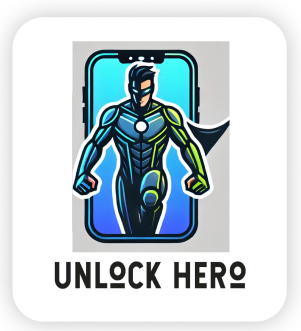Kids on Mobile Too Much?
- Responsibility & Time Management: Encourages organization and routine-building through daily and weekly tasks like cleaning, planning schedules, and managing laundry.
- Creativity & Problem-Solving: Enhances creative thinking through activities like building LEGO structures, designing mazes, and crafting.
- Collaboration & Empathy: Promotes social and emotional skills through collaborative activities like organizing family movie nights or writing letters to loved ones.
- Critical Thinking & Academic Growth: Focuses on intellectual development through tasks like summarizing educational videos, solving puzzles, and practicing writing or math.
- Physical Health & Well-Being: Ensures physical activity through outdoor play, yoga, or biking to balance mental and physical health.
These tasks are based on developmental psychology and cognitive-behavioral principles. Each task is designed to:
- Align with the child’s developmental stage (ages 7-10 and 11-15).
- Build foundational habits for responsibility, creativity, and critical thinking.
- Provide gradual progression to more complex tasks as the child grows.
The tasks are designed to fit into a structured routine:
- Daily tasks: Focus on consistency, like cleaning the room or brushing teeth.
- Bi-daily or weekly tasks: Encourage sustained engagement, like writing letters or practicing yoga.
- Every 2-3 days: Balance between repetitive and creative tasks, like completing puzzles or building LEGO structures.
A: Not at all! After initiating the app and adding child profile and pairing devices, there are only 3 simple steps:
- Select the time of the day and week: Choose when your child can complete reward tasks and unlock their mobile for reward apps.
- Select the reward apps: Choose apps like YouTube, social media, or games as rewards. You can also mark some apps as “always available” and others as “restricted.”
- Customize the reward tasks: Review the reward tasks, opt-out of any unwanted tasks, and adjust the reward time if needed.
That’s it! The rest is managed by our EMMA AI assistant, which offers your child 10 varied tasks daily to choose from. To make it variable and engaging.
A: None at all! EMMA handles everything:
- Proof Submission: Your child submits proof (like a photo) after completing a task.
- Assessment & Guidance: EMMA evaluates the task and guides the child if the task isn’t delivered with quality.
- Phone Unlocking: Reward apps are unlocked only after tasks are completed.
As a parent, you have access to:
- Daily Reports: Details of tasks selected, completed, and photo proof submitted.
- Overall Reports: Insights into streaks, tasks delivered, offline time spent on tasks (approximate), and progress in the 5 developmental areas.
A: The potential for tricking the system is minimized because:
- Tasks require direct photography, so the system doesn’t allow older pictures from the gallery to be uploaded.
- Regular parental checks are recommended for tasks that may require advice or quality checks, like plant watering or homework.
This combination ensures tasks are done authentically while giving parents peace of mind.
Yes. Each task is tailored to be age-appropriate:
- For children aged 7-10, the focus is on learning the basics and building habits.
For children aged 11-15, the tasks include additional responsibilities and higher cognitive challenges.
- Ages 7-10: Sort clothes by color/type and load into the washer or dryer.
- Ages 11-15: Add detergent, select appropriate settings, and start the machine.
The program includes a pre-set reward system, where children earn small rewards (e.g., 15-30 minutes of preferred activity) after completing tasks.
This positive reinforcement ensures they stay motivated while building lasting habits.
Monitor:
- Consistency: Are they completing daily/weekly tasks on time?
- Independence: Do they need less guidance over time?
- Skill Development: Is their creativity, problem-solving, or physical activity improving? You can use a simple checklist to track these.
- Opt out in the settings for tasks which turned out to be challenging. EMMA will disregard these when choosing the 10 for the day.
- Provide guidance or model the behavior initially.
- Encourage them with positive feedback and adjust the reward system if needed.
Behavioral changes can begin within a month as routines become habits. Significant improvement in skills and capabilities for the AI era—like critical thinking, problem-solving, and empathy—will be noticeable within a few months, provided the tasks are consistently followed.
These tasks focus on:
1. Responsibility & Time Management – practices aid your child in building crucial organizational abilities, fostering self-discipline, and cultivating accountability, setting the stage for a well-structured and thriving future. |
2. Creativity & Problem-Solving – these tasks motivates your child to explore new ideas, gain hands-on abilities, and face challenges boldly, enabling them to adapt and succeed in real-world scenarios. |
3. Collaboration & Empathy – exercises nurture your child’s ability to connect with family, understand the importance of supporting others, and enhance emotional awareness, shaping them into kind and considerate individuals. |
4. Critical Thinking & Academic Growth – critical thinking and academic growth equip your child with the tools to tackle problems effectively, excel in their studies, and cultivate a love for learning, paving the way for a successful future. |
5. Physical Health & Well-Being – activities to develop a healthy body, focused mind, social skills, and discipline, laying the foundation for balanced and successful future living. |
Copyright © 2024 – Unlock Hero. All Right Reserved.
